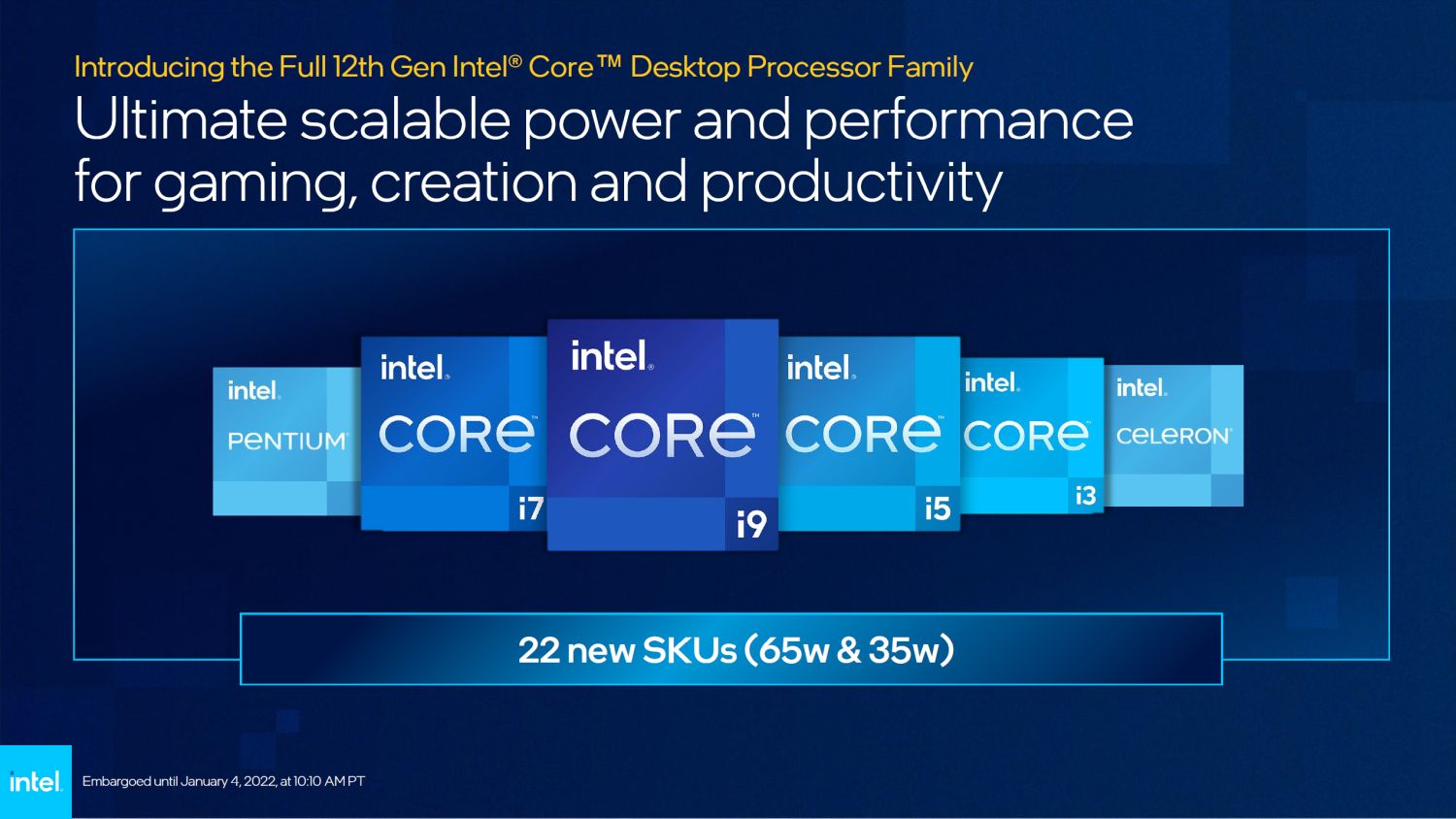Earlier today, Intel opened up an entire smorgasbord of new products, ranging from its latest 12th generation Alder Lake H-Series Mobile processors, its latest Evo branded solutions, and more importantly, an announcement stating that production had already begun for the Core i9-12900KS, its most powerful KS-Series desktop CPU to-date. In conjunction with the CES 2022 livestream, Intel also quietly added several new, non-K Alder CPUs to its portfolio, along with new stock coolers and 600 chipset motherboards.
In total, there are a total of 22 new CPUs, broken down into two categories: Mainstream and Low Power CPUs. In the mainstream category, the list starts with a dual-core Celeron G6900 at the bottom of the barrel and goes all the way up to a 16-cores, 24-threads Core i9-12900 CPU. For the uninitiated, the “non-K” variants of Intel’s processors denote that these CPUs, while powerful, are not overclockable. On another note, all mainstream Core CPUs on the list with an “F” moniker at the back of their designation mean that they are devoid of an integrated GPU.
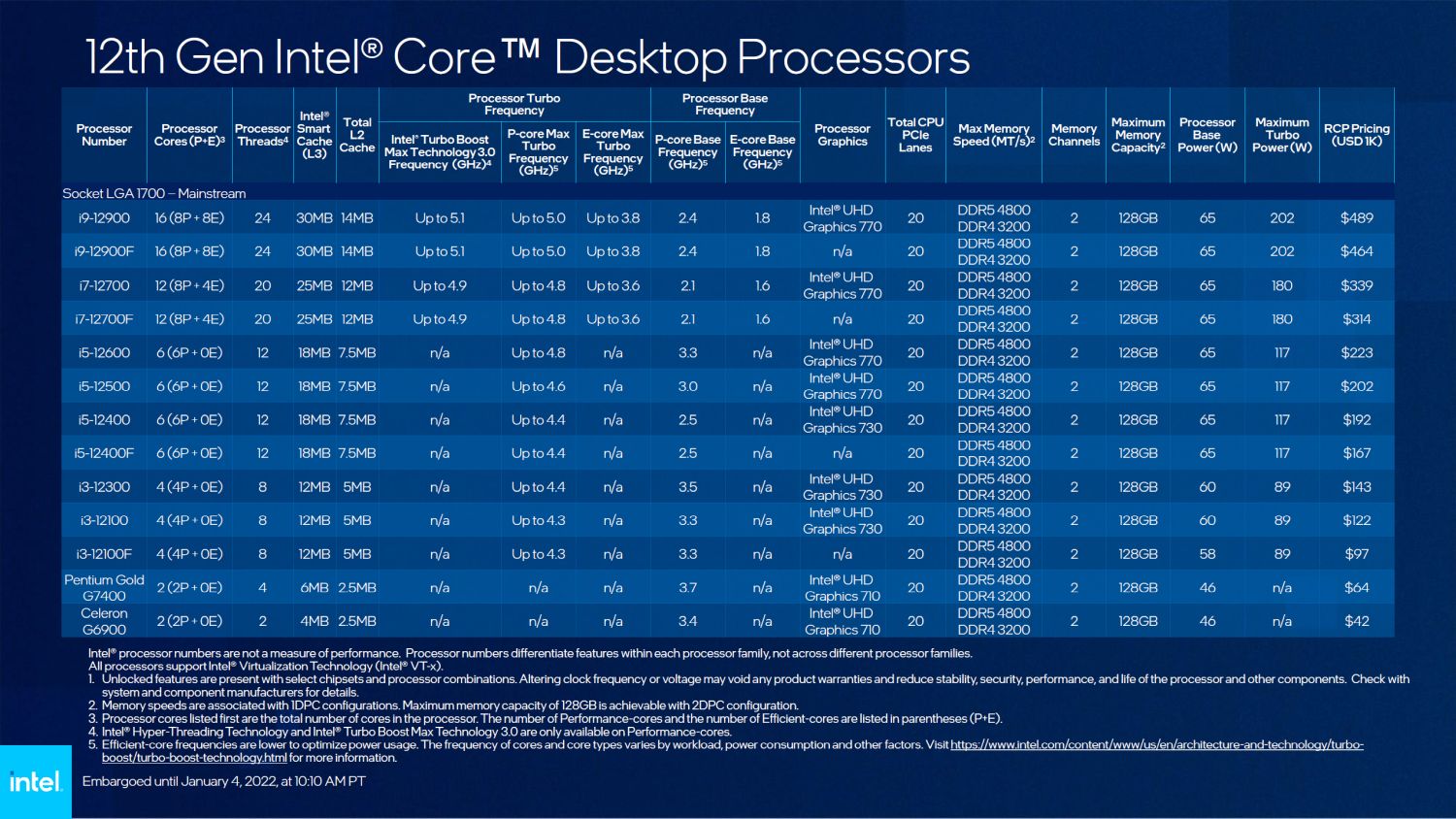
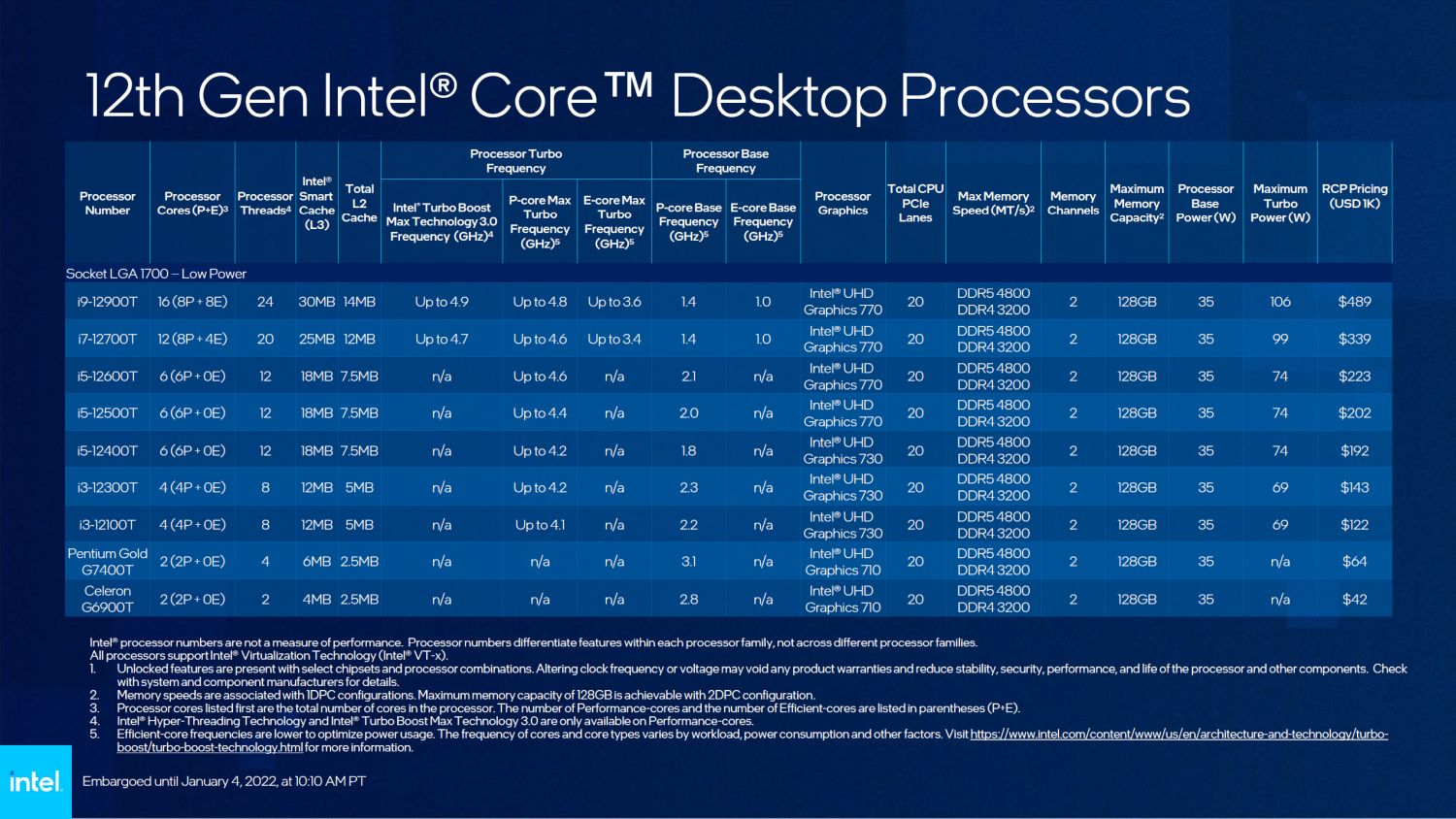
Moving on, desktop CPUs in the Low Power category is distinguished with a “T” moniker in their designation. As you can imagine, these are variants that feature slightly lower base and boost clocks, in contrast to their mainstream brethren. What sets them apart, though, is their significantly lower Processor Base Power (PBP) consumption of 35W across the board. By comparison, the lowest-tier Celeron G6900 in the list still consumes 48W of power at the bare minimum, 60W for the Core i3 series, and 65W for all processors, starting from the Core i5 SKUs onwards.
To state the obvious at this point, all of the new 12th generation CPUs are based on Intel’s latest LGA1700 socket and will retail at prices starting from US$42 (~RM176), while the top-end 12900 retails at US$489 (~RM2050). They also feature Intel’s dual P-Core and E-Core architectures, as well as access to Thread Director.
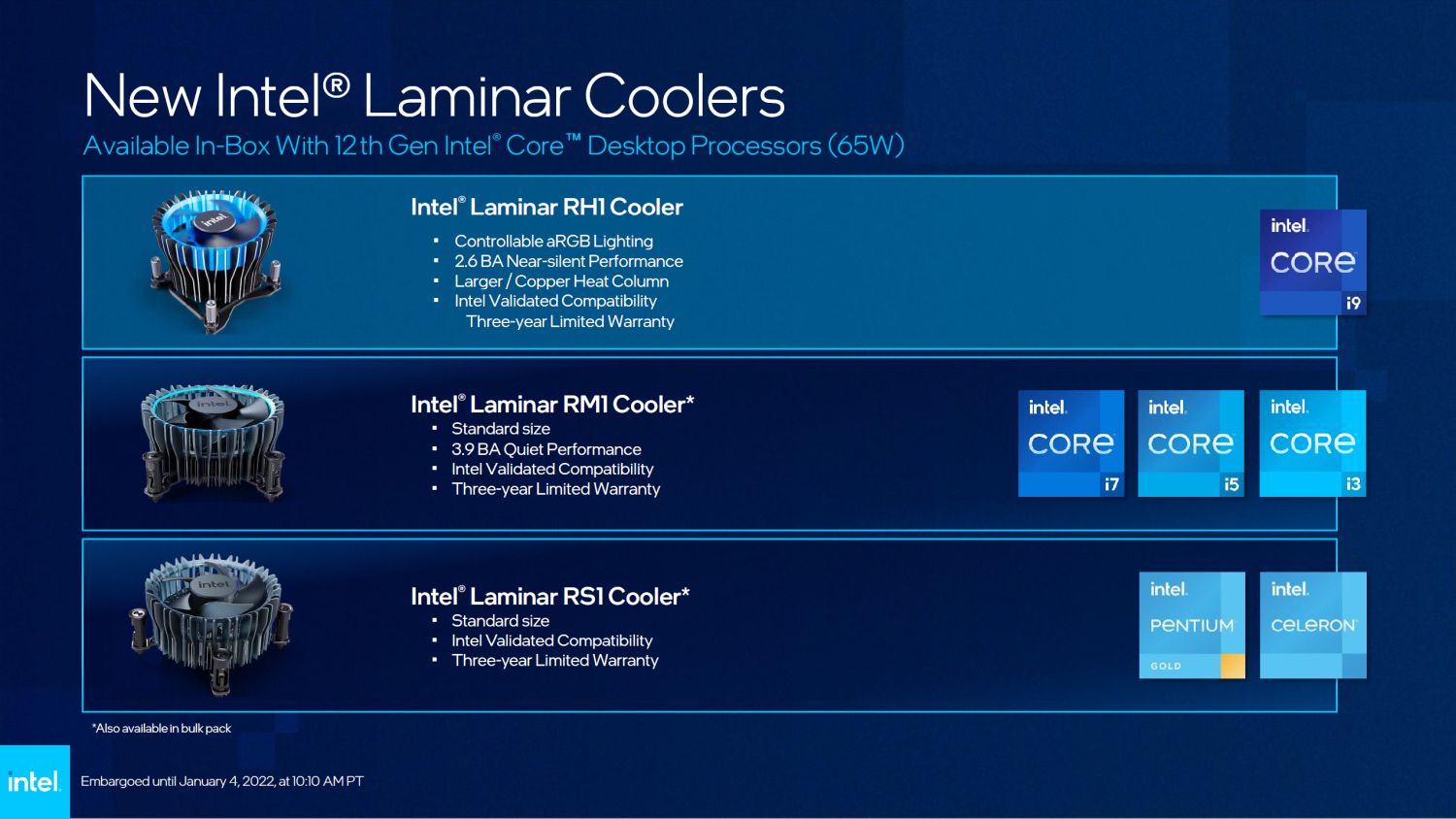
In addition to the new processors, Intel will also be bundling them with all-new Laminar stock coolers. You can tell at a glance that these CPU coolers are a far cry from the original stock coolers Intel had previously shipped out with previous generation CPUs. In total, there are three Laminar coolers, with each being a blend of transparent blue acrylic, perched on top of a copper heatsink.
The first one is the Laminar RS1 Cooler and as per Intel’s description, it is a standard size heatsink that will be bundled with both the Intel Pentium and Celeron CPUs. Moving up the ladder, the Laminar RM1 cooler is also a standard size cooler but is rated for 3.9BA, meaning that it should theoretically be quieter than the RS1. This stock cooler will be bundled with CPUs under the Core i3, Core i5, and Core i7 categories.
Sitting on the pedestal is the Laminar RH1 cooler, which will come bundled with mainstream Core i9 CPUs. Unlike the RM1 and RS1, this stock cooler is visibly taller and features a significantly larger Copper Heat Column, as well as a 2.6BA rating, indicating a “near-silent” performance. Oh, and it also has controllable ARGB lighting. Regardless of model, all three Laminar stock coolers come with a Three-Year Limited Warranty and Intel Validated Compatibility.
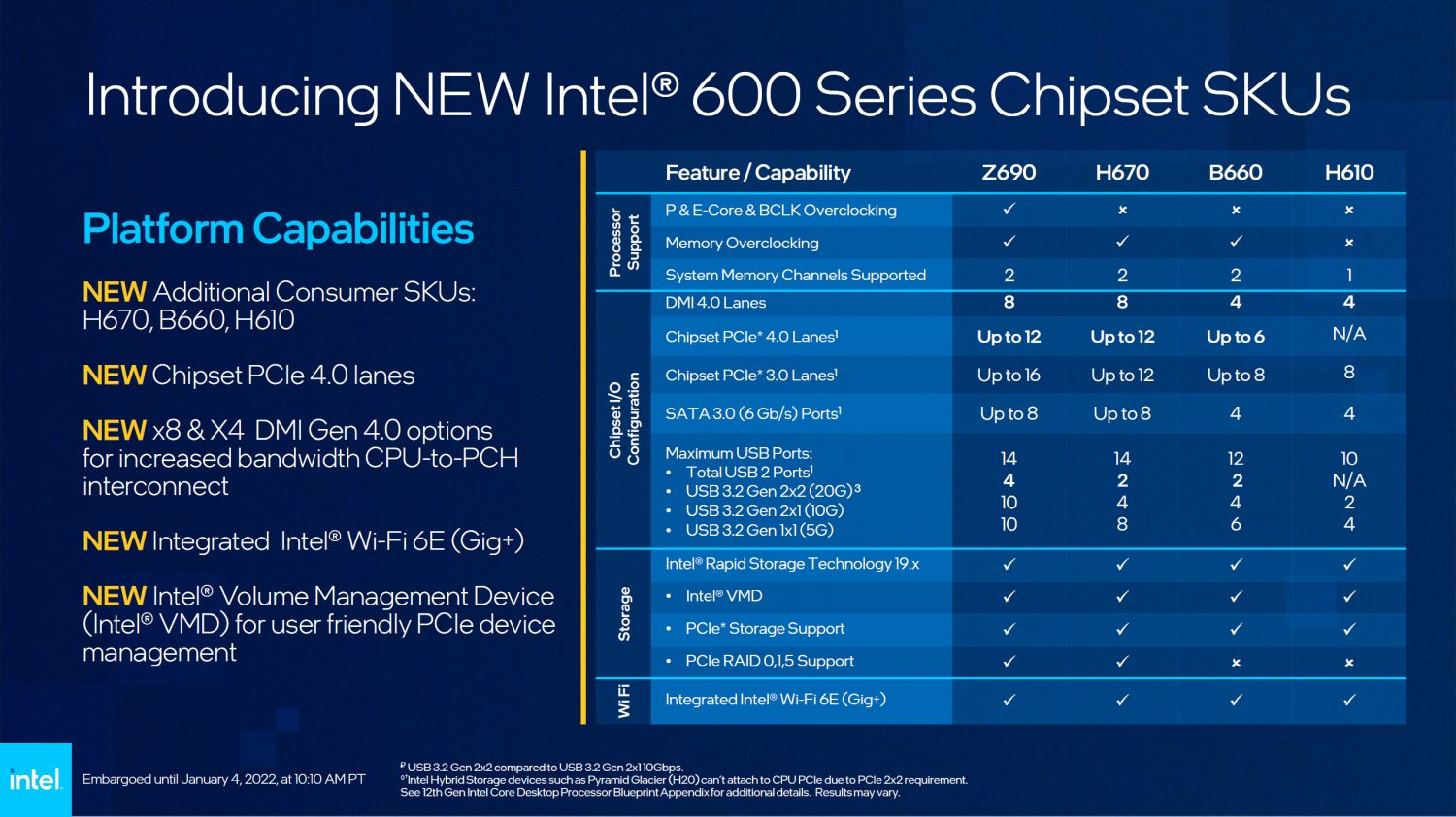
Last but not least, and to complement the new mainstream CPUs, Intel will be launching a whole new range of 600 chipset motherboards. These new consumer SKUs will include the long-awaited mainstream, mid-range, and entry-level motherboards, ranging from the H670, B660, and H610 series.
Some of these new motherboard chipsets will gain access to up to 12 PCIe 4.0 lanes, with the exception of motherboards under the H610 series. It’s the same story with memory overclocking, but do note that P-Core, E-Core, and BCLK overclocking is not supported on any of these motherboards.
Regardless of the model though, Intel says that all H610, B660, and H670 chipset motherboards will come integrated with Intel Wi-Fi 6E technology.
Follow us on Instagram, Facebook, Twitter or Telegram for more updates and breaking news.


